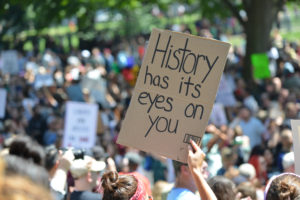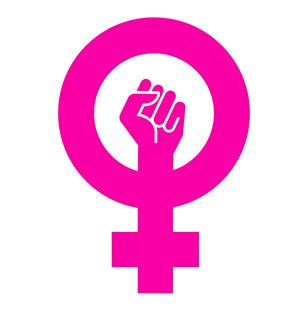Overturning Roe v Wade Only Reinforces Systemic Racism in America
Please Donate To Protect Women’s Rights

 Now Offering Free Litigation Assistance to Women Hurt By Overturning of Roe V Wade
Now Offering Free Litigation Assistance to Women Hurt By Overturning of Roe V WadeFor nearly 50 years, the landmark decision handed down by the United States Supreme Court in Roe v Wade has been the defining law of the land when it comes to women’s reproductive rights. Writing in the majority opinion in the case, Justice Harry Blackmun stated it clearly: “The attending physician, in consultation with his patient, is free to determine, without regulation by the State, that, in his medical judgment, the patient’s pregnancy should be terminated.”
Sure, the language surrounding it being largely the physician’s decision (not to mention the assumption that the physician in question is male) is dated, but the sentiment couldn’t be more forthright: The decision to terminate a pregnancy ultimately belongs to women. It does not belong to the State.
This decision has held for nearly 50 years despite repeated challenges, but today it comes to an end and now a woman’s decision whether to choose basic health care depends on where she lives. Today’s opinion written by Justice Samuel Alito spells the end of Rode v. Wade, creating a chaotic patchwork of contradictory laws across the country.
Contrast this against abortion laws around the world, where courts on every point of the globe have recognized abortion care as a fundamental part of the human rights of women and girls, and a crucial part of health care.
The World Health Organization has even weighed in, saying, “Inaccessibility of quality abortion care risks violating a range of human rights of women and girls, including the right to life; the right to the highest attainable standard of physical and mental health; the right to benefit from scientific progress and its realization; the right to decide freely and responsibly on the number, spacing and timing of children; and the right to be free from torture, cruel, inhuman and degrading treatment and punishment.”
Attorneys for the Fair Fight Initiative find the decision tragic. At its heart, this decision represents a massive step backwards for America. Justice Alito, in grounding his decision in “America’s history and traditions,” plants his ideological flag in history and traditions of this country that have marginalized women — particularly women of color — at every turn, including through slavery and lynching.
 How Will This Affect Women?
How Will This Affect Women?Before looking at the impact overturning Roe v. Wade will have on marginalized communities, let’s first look at how it will affect a group that makes up half the population: Women.
At the very least, the laws that will follow this decision will cause undue emotional trauma on women, increasing the stigma that surrounds abortion, and decreasing options when it comes to family planning and proper medical treatment.
That alone makes this decision a tragedy, but that’s just the surface. At a deeper level, things only get more grim.
Individual states will press—if they do not already have trigger laws that take effect due to this decision—laws that would criminalize abortion to absurd levels, deeming abortions felonies and in the case of one Louisiana bill, casting abortion as homicide. By driving the whole process back underground, this decision will increase the number of “back-alley” abortions performed in unsafe highly dangerous conditions for women.
While the option always remains to travel to a different state to get the necessary medical treatment a woman needs to survive, this can be a very costly process, creating a financial strain on a woman already facing intense trauma. And, in many cases such as in lower-income communities, the option to travel isn’t an option at all.
That just leaves the option of carrying a pregnancy to term, regardless of medical consequences or the mother’s socioeconomic or psychological situation. Study after study shows that unintended pregnancies have a negative effect on the mother’s ability to pursue higher education or career advancement. And the negative impacts will disproportionately impact women of color.
How This Will Affect Women of Color
In this country, black women are roughly three times as likely to die from pregnancy-related causes than white women. This comes to us from the U.S. Centers for Disease Control and Prevention, who also add that nearly a third of all abortions in this country are performed on black women, making them, proportionally, the largest group affected by overturning Roe v. Wade.
And this is a group that is already endangered by the wildly racist policies inherent in our system. This higher abortion rate goes hand-in-hand with other disparities that plague black women, such as higher rates of death in infants and mothers during the birthing process, higher rates of disease and stress, lower life expectancies, and overall poorer living conditions.
The overall disparity in income is particularly important when it comes to seeking an abortion. On average, the procedure will cost a woman $500 out of pocket. As it stands now, that amount is unaffordable to the more than 1 in 9 women who live in poverty. Factor in costs associated with traveling out of state and legal fees to defend against possible prosecution, and this becomes an impossible situation for women living in lower-income communities.
It’s a cycle of increasing poverty that was created by systemic racism, and it will only deepen now that Roe v Wade is overturned. Writing in an article titled, “Disparities in Abortion Rates: A Public Health Approach,” the United States Library of Medicine wrote, “Research and policy that recognizes the importance of all aspects of women’s reproductive health—including pregnancy prevention, abortion care, pregnancy services, and economic supports—are essential to meeting the reproductive health care needs of low-socioeconomic status households and women of color. This work must recognize that, although disparities are associated with differences in individual-level factors, these factors are constrained and produced by larger structural inequities, including racism and poverty, and by a legacy of coercive reproductive health policies.”
What You Can Expect
There will not be an immediate nationwide ban on abortion. Instead, the decision to determine the legality of abortion falls to individual states, some of which have been waiting for this day almost as soon as Roe v Wade was first handed down.
Some of these states have enacted laws called “Trigger Laws,” written and passed with the express purpose of banning abortion immediately the moment Roe v Wade is overturned. In other cases, states would revert to abortion bans that were in place before 1973 but were never repealed. Several states have bans after the fetus reaches six- or eight weeks of gestation. There are 22 of these states in all, and examining them at a state-by-state level yields interesting results:
States with bans that predate Roe v Wade, which would resume enforcement immediately, include Arizona, Michigan, Oklahoma and Wisconsin. Some states, like Arkansas, Mississippi, Texas, and West Virginia have doubled down, with Trigger Laws that would augment their pre-Roe bans, with West Virginia’s state constitution even barring protection of abortion under the law.
Among states that have enacted Trigger Laws, Idaho, Kentucky, Louisiana, Missouri, North Dakota, South Dakota, Tennessee, Utah, and Wyoming will all impose bans between six and eight weeks. In the case of Louisiana and Tennessee, we again find that their state constitutions bar any protection.
Finally, while no Trigger Laws are in place, the states of Georgia, Iowa, Ohio, and South Carolina are poised to introduce six-week bans.
While these states occupy every point of the country, the heavy concentration in the South will have a much greater impact on communities of color. More than half of all black women and a high proportion of Latina women live in the South, where abortion laws are the strictest. As it stands, these groups face disproportionate hardship in attaining suitable health care. With the passage of these laws, those hardships will only increase, and the cycle of anguish, poverty and systemic racism will roll on.
These are hard-fought rights that have protected women for 50 years, and despite overwhelming public support, they stand at the brink of destruction in many states based on the extreme views of five men and one woman, four of whom were given lifetime appointments to the Supreme Court by presidents who did not win the popular vote in their elections and who were confirmed by an antidemocratic Senate that disproportionately represents small, rural, and overwhelmingly white states.
Now that the national right to abortion has fallen, women of color will be impacted to a tragic degree. It’s another example of a system that marginalizes women of color, and one we intend to fight.
Fair Fight is taking action right now to fight against this rigged system, and we need your support to fight back on behalf of women, especially women of color, who will be hurt now that Roe v. Wade is overturned.
Through crowdfunding, we provide legal services, litigation, and community advocacy to help people seek justice that can’t afford to do so on their own.
When the first Trigger Law ensnares a women for her personal choices; when the first compassionate friend is arrested for helping a friend maintain control of her reproductive rights; when the first woman suffers irreparable harm – or even death – due to these draconian laws, we stand ready to direct our resources to balance the scales of justice in their cases.
Please consider making a tax-deductible donation or starting your own fund-raising page to help make it a Fair Fight for all women.
Featured in The Media




